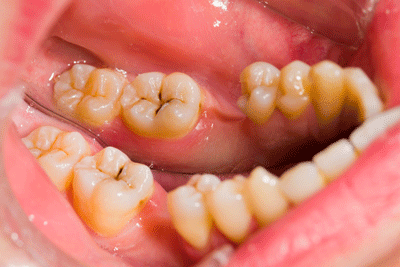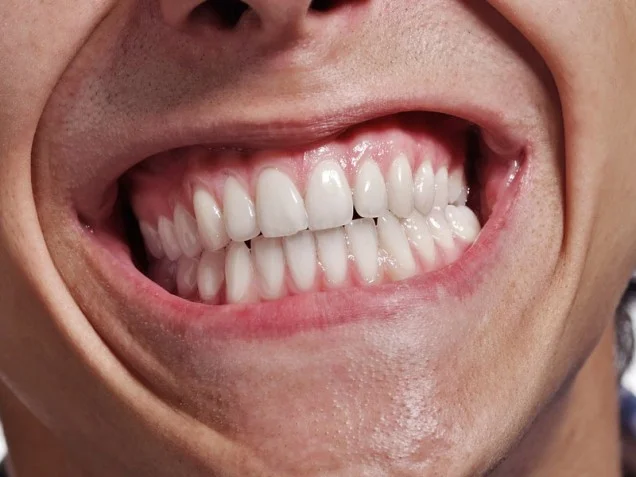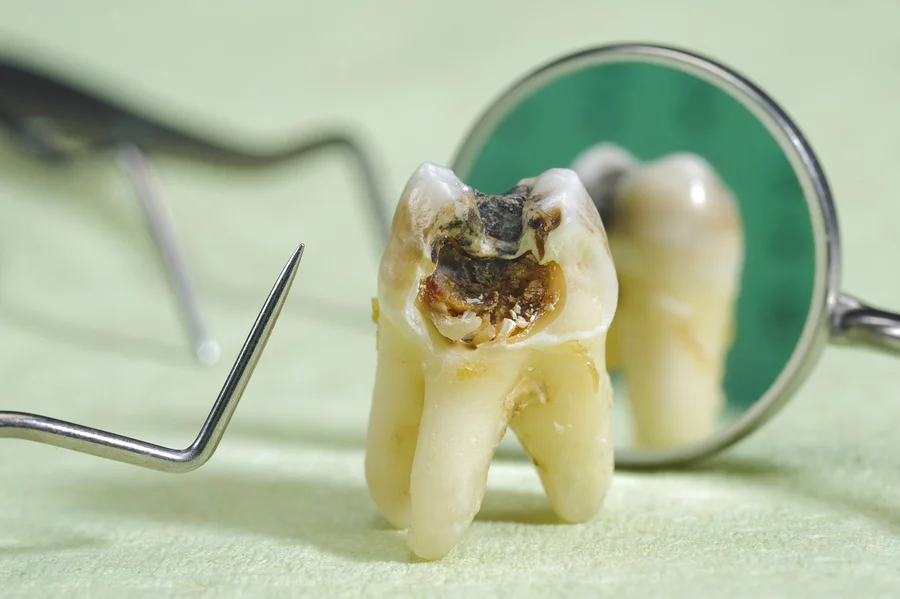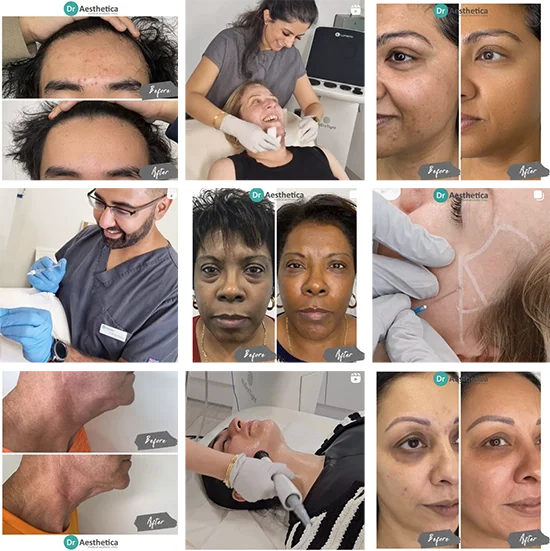Before we discuss whether grinding teeth can cause cavities First of all, we need to understand - what is a cavity?
Well, A cavity is a small hole or pit that develops on the surface of a tooth as a result of tooth decay. Tooth decay is caused by the bacteria in plaque, which produce acids that erode the enamel of the tooth over time. A cavity can continue to grow and penetrate the inner layers of the tooth if left untreated. This can lead to more serious dental problems, such as infection or tooth loss.

Cavities may also cause tooth sensitivity, pain, and visible discoloration or damage to the tooth. To help prevent cavities from developing or becoming worse regular dental check-ups and proper oral hygiene (such as brushing and flossing) are needed. So now time to answer the question - can grinding teeth cause cavities?
Now let's delve into the relationship between teeth grinding and cavities
Teeth grinding (bruxism) and cavities can be related to each other. Bruxism can cause excessive wear and tear on the teeth. This can lead to the development of cavities over time. This is because grinding can weaken the enamel of the teeth and make them more susceptible to decay caused by the bacteria in plaque.

Also, bruxism can also cause small cracks or chips in the teeth, which can provide an entry point for bacteria to penetrate deeper into the tooth. These bacteria then cause cavities to form (we don't like these bacteria). Also, bruxism can create an abnormal bite or misaligned teeth. This makes it more difficult to clean the teeth, increasing the risk of cavities.
cavities can also contribute to bruxism. When a cavity is present, it can alter the way the teeth come together when biting or chewing, leading to a misaligned bite, which can cause bruxism. Cavities and Bruxism can both be double whammies!
Now that we now grinding teeth can cause cavities and vice versa! It's important to address both bruxism and cavities to prevent them from causing further damage to the teeth.
The other question is can grinding teeth cause toothache?
Yes, grinding teeth or bruxism can cause toothache. Severe teeth grinding can cause small cracks or chips in the teeth. Which can expose the sensitive inner layers of the tooth, leading to toothache.

Can cavities spread to other teeth?
Yes, cavities can spread to other teeth if they are not treated. Acid-producing bacteria cause cavities, which erode the tooth enamel and create a small hole or pit in the tooth. If the cavity is left untreated, the bacteria can continue to grow and spread to other teeth, causing more cavities.
Moreover, if a cavity is not filled, it can become deeper and reach the inner layers of the tooth. here it can cause an infection or an abscess. If the infection spreads to the surrounding teeth, it can cause more cavities and further damage to the teeth and gums.
Which is not good of course!
So, have cavities treated as soon as possible to prevent them from spreading to other teeth and causing more dental problems. You can do this by getting regular dental check-ups which can help identify cavities early. This will allow you to get early treatment to prevent further damage to the teeth.
Can your dentist tell if you grind your teeth?
Yes, your dentist can tell if you grind your teeth via a dental exam where they will look for signs of wear and tear. During a dental exam, your dentist may look for the following signs of bruxism:
- Enamel wear: Grinding can cause the enamel of the teeth to wear down over time, which can make the teeth appear flat or worn down.
- Tooth sensitivity: Excessive grinding can also cause the teeth to become more sensitive to hot and cold temperatures. I think we can all agree tooth sensitivity is the worst!
- Cracks or chips: small cracks or chips can develop in the teeth. These can be visible on dental X-rays or during a visual exam.
- Jaw pain or soreness: Grinding can cause the muscles around the jaw to become tense or sore. This can be a sign of bruxism.
If your dentist suspects that you grind your teeth, they may recommend further testing, such as a sleep study. Which can help to confirm the diagnosis and develop an appropriate treatment plan.
How can you treat cavities?
A dentist can treat cavities via:
- Fillings - For a small cavity the dentist may remove the decayed part of the tooth. Then fill the space with silver amalgam, gold filling, or a tooth-coloured composite resin
- Root canal therapy - for a cavity that has reached the pulp of the tooth, a root canal may be necessary. A root canal can remove the inflamed or infected tissue and fill the canal with a filling material.
- Crown - If the cavity has damaged the tooth, a crown may be necessary to restore its shape and function. A crown is a cap that covers the tooth and is made of porcelain or a combination of porcelain and metal.
- Extraction - If the cavity is too large and the tooth cannot be saved, extraction may be necessary.
This is all good information yet, the best way to treat cavities is to prevent them in the first place.
This article was read and reviewed by the face of DR Aesthetica himself - DR Baldeep Farmah.
What can you do to prevent cavities from grinding teeth?
Botox treatment is sometimes used as a method to treat bruxism. This then prevents cavities from forming from teeth grinding or bruxism. Botox is a neurotoxin that can be injected into the muscles around the jaw to relax them and reduce the intensity of teeth grinding. By reducing the force of grinding, Botox treatment can help protect the teeth from the excessive wear and tear which leads to cavities.
When the muscles around the jaw are relaxed, it can also help to reduce the pain and discomfort associated with bruxism, Such as headaches, soreness, and tension in the jaw. Also, Botox treatment is an effective treatment that lasts for several months before wearing off.
It's also important to note that Botox treatment is not a treatment for cavities and is a prevention method. Treatments such as fillings or root canals can treat existing cavities or other dental problems caused by bruxism.
What we recommend
If you would like more information on possible treatments such as a Botox treatment then contact us today. you can additionally get in touch with us via phone or email.


